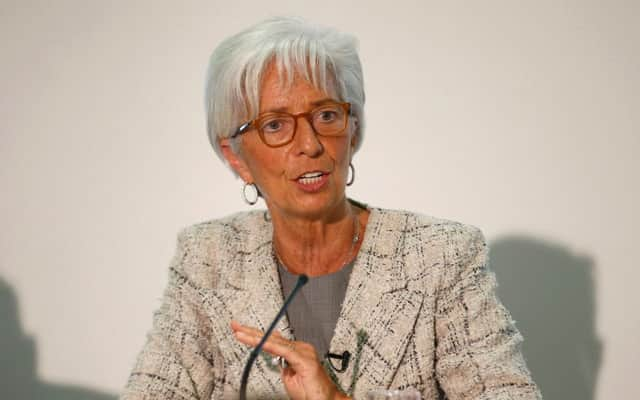Nothing good from Brexit, warns IMF chief Christine Lagarde


Brexit poses a “significant downside risk” and could see interest rates “rise sharply”, Christine Lagarde said as the global finance body published its regular report on the UK’s economic prospects.
Withdrawal from the 28-member bloc meant a “protracted period of heightened uncertainty” for the UK, with a likely hit to output and “sizeable” long-term losses in income, said the assessment.
Advertisement
Hide AdAdvertisement
Hide AdGlobal market reaction to a Leave vote in the June 23 referendum is likely to be “negative and could be severe”, it added.
Speaking at the Treasury, Ms Lagarde said the prospect of Britain voting to leave was causing “anxiety around the world”. She said Brexit “could potentially lead to a technical recession” – two or more quarters of negative growth – in comments that echoed warnings by the Bank of England governor Mark Carney.
“It is a combination of the current situation, with the weaknesses of the current account deficit – north of 5 per cent – and the potential immediate outcome of a No vote and the level of uncertainty that would certainly lead to serious disruptions,” she said.
“The combination of all that could potentially – and that is one of the many probabilities – lead to a technical recession.”
The IMF managing director insisted there was no positive scenario for UK economic performance after Brexit when other trade models were analysed, such as Norway and Switzerland, or reverting to World Trade Organisation rules.
“Depending on what hypotheticals you take it’s going to be pretty bad to very, very bad,” she said.
“We have looked very carefully at the whole range of existing opinions, calculations, modularisations, forecasts, scenario planning and we have done our own homework, and frankly, in the very vast majority of what we have seen, we haven’t seen anything that is positive, it’s always been on the negative side.”